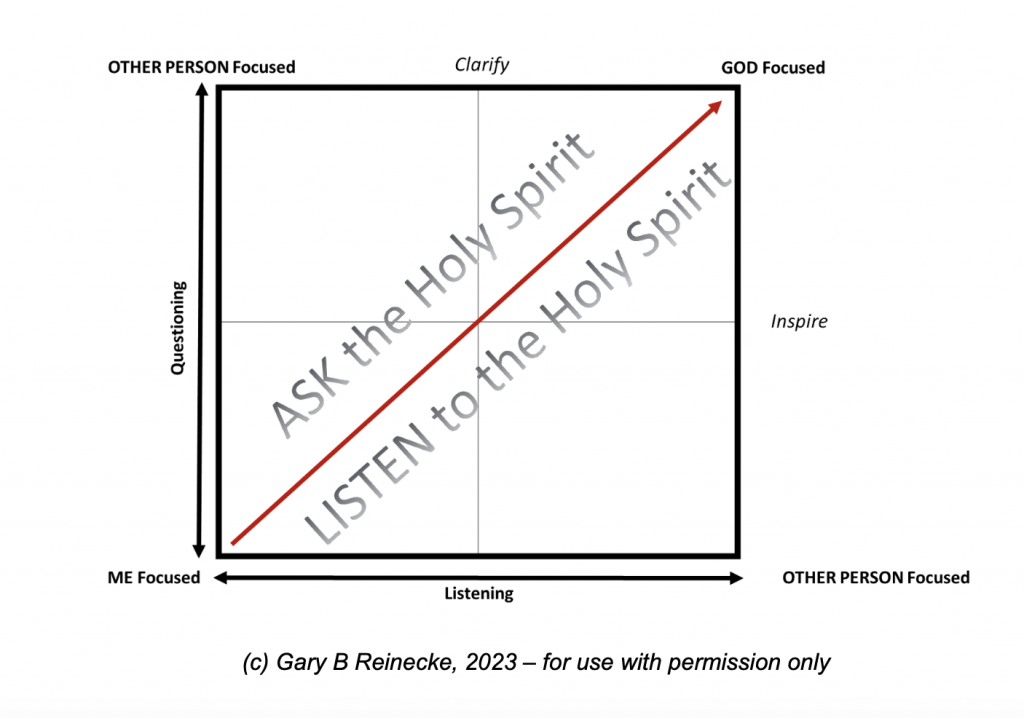Are you known as one who helps people develop and grow? Do people feel empowered to take action when talking with you? Do people under your leadership honestly believe you help them move from deep reflection on an issue to proactively taking steps forward?
The next time you are in a conversation, gauge where you most naturally gravitate – reflection or action.
This is not an easy transition to help people through. It doesn’t come naturally for some – but there is good news! I want to share a simple shift you can make to become more intentional and effective in your conversations. Let’s talk about what it takes to help people move from deep reflection to effective action.
Most leaders have an innate tendency to be stronger in one area than the other. But it is absolutely essential that you live in the healthy tension of both reflection and action so that people you develop, empower, and release can grow in the right areas, in the right way, attaining their desired outcome. As a leader, it can be tempting to settle in your sweet spot; however, mastering both reflection and taking action is a discipline you can develop!
Goal: To help leaders move from passively assessing and reflecting to taking action.
Benefits to take a step towards a goal:
- Action allows leaders to test their assumptions
- Action forces people out of their comfort zone
- Action is necessary for growth
- Action creates momentum
- Action builds confidence

From Reflection to Action:
Remember the primary aim is to help people listen and respond to the Holy Spirit. You can see in the diagram above that the more you and the people you develop are focused on God and less on yourselves, the more likely people will clarify and be inspired to take action!
Let me unpack this a little more:
Clarify: the more understanding a person has of the reasons behind a change, the greater the motivation.
Inspiration: the more a person “feels” the need to change, the greater the energy needed to do so is activated.
To concrete this further, good coaching addresses both the head (clarity of thought) and the heart (energy) for change.
Three Mini-Shifts to help people you are developing:
- Challenge the other person to act.
- Do not allow new disciples or leaders to remain in a state of reflection. Action is the catalyst for development and growth; without action, God’s plans for us will take exceedingly more time to come to fruition.
- Use questions to help a person articulate what they will do.
- Make sure there is a plan in place. Action is likely to fail without practical and well-thought-out steps to reach the goal.
- Gain commitment from the other person.
- Make sure you have considered all angles when it comes to what the action will lead to – even potential negatives – and help people remain committed to the goal.
Real-Time Actions:
- Clarify. Summarize the main points of what people have shared and ask follow-up questions to probe until they have enough clarity on the action they intend to take.
- Inspire: Ask people to share what they want to accomplish and the motivation behind it. Tap into their “why.”
Take a moment to reflect on this shift – from reflection action. What new insights do you have
Reflection Questions:
- Who is stuck in reflection that I am coaching?
- Who tends to skype reflection and move right into action?
- How do I help people clarify what they want to do?
- How do I inspire people to take action?
- Where do I naturally gravitate – reflection or action?
Coaching Questions:
- What is the most important thing…?
- What will you do?
- How committed are you to do this?
- What will you give up to do this?
- What will this give you…?
Key Question: How can I help people do both well – reflect and take action?
Photo by Tool., Inc on Unsplash

